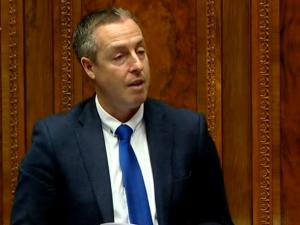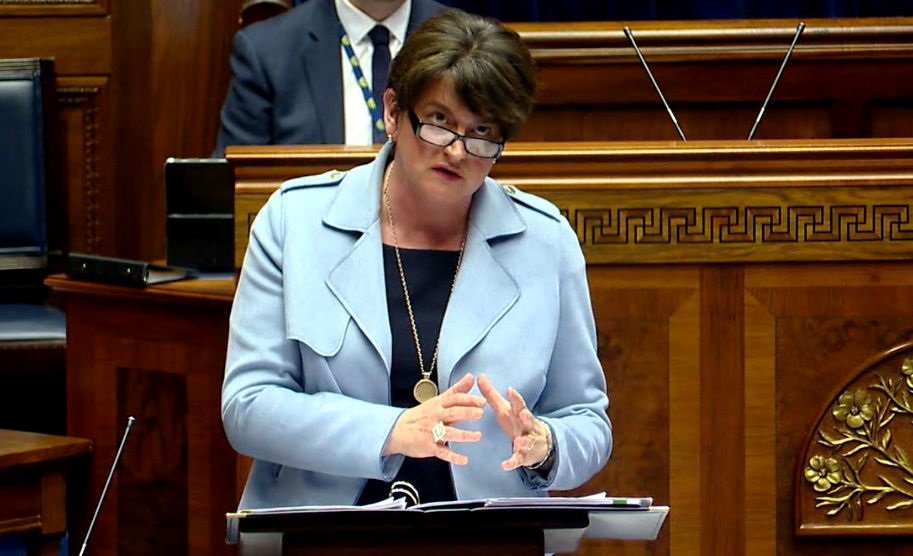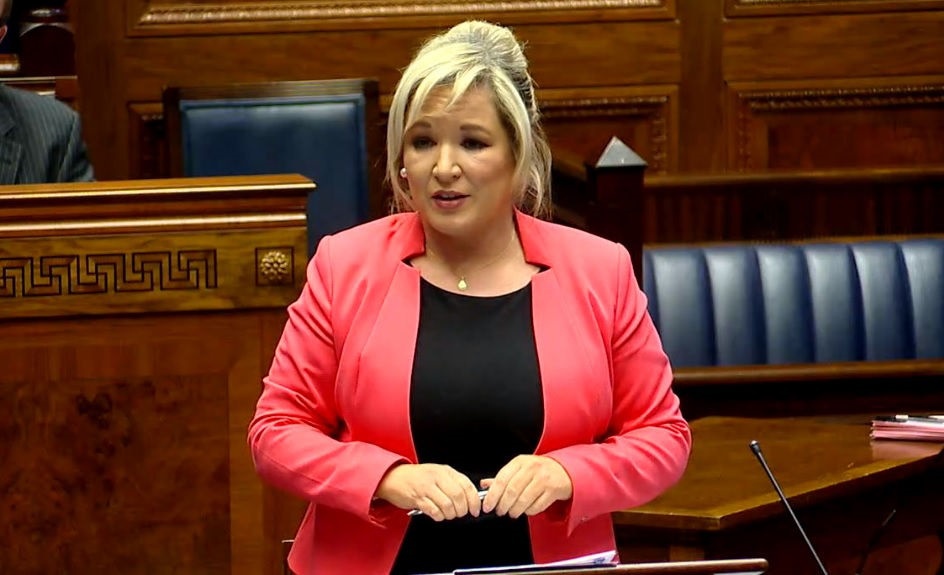
Q Radio News/PA
A Bill aimed at outlawing abortions being carried out in cases of non-fatal disabilities has passed its second stage in the Northern Ireland Assembly.
The Severe Fetal Impairment Abortion (Amendment) Bill was passed by 48 votes to 12, with 27 MLAs abstaining.
Earlier Sinn Fein vice president Michelle O’Neill indicated her party would abstain.
She said the focus should be on commissioning the services which should already be in place.
A Bill aimed at outlawing abortions being carried out in cases of non-fatal disabilities has passed its second stage in the Northern Ireland Assembly.
— Q Radio News (@qnewsdesk) March 15, 2021
The Severe Fetal Impairment Abortion (Amendment) Bill was passed by 48 votes to 12. pic.twitter.com/lbPE9Yfo1J
The Bill has been referred to the Health Committee for scrutiny.
It comes after Westminster passed legislation liberalising the region’s abortion laws while the Stormont Assembly was collapsed.
The debate on Monday, which lasted into the evening, saw some sharp exchanges on an issue which divides the parties.
DUP leader Arlene Foster claimed that aborting babies with Down’s syndrome was “entering the realm of eugenics”.
Eugenics was championed by the Nazis and involves breeding people with desirable hereditary traits.
Mrs Foster’s party is opposed to terminations and has proposed a new law to prevent them being carried out in cases of non-fatal disabilities.
Ms O’Neill said the DUP was attempting to roll back legislation liberalising the country’s abortion laws.
Mrs Foster told the Stormont Assembly: “No one’s life is less valuable and this standard should apply to lives inside and outside the womb.
“We are entering into the realm of eugenics, and you can deny that all you like but we are on a very slippery slope.
“Everyone should be very careful about that, because it is Down’s syndrome and non-fatal disability today – what is it in 10 years’ time that we are deciding is appropriate for abortion?”

First Minister Arlene Foster.
Sinn Fein will this week ask Stormont ministers to commission abortion services two years after legislation enabling the procedure was passed at Westminster while devolution was suspended.
Ms O’Neill said: “This is the thin end of the wedge and attempting to reopen a debate that has already been had around women’s healthcare provision.
“I am here to give a voice to those women who find themselves in incredibly difficult and very vulnerable circumstances.”
Ms O’Neill addressed the assembly in her role as a senior member of her party rather than deputy First Minister in a devolved five-party powersharing administration which is divided on the issue.
She said the DUP and Ulster Unionist Health Minister Robin Swann were “failing” women by refusing to commission services legislated for long ago.
Ms O’Neill added: “Women are entitled to have compassionate healthcare.
“It is a human right to have compassionate healthcare and should be the focus of what this assembly is concerned about.”

Deputy First Minister Michelle O'Neill.
Northern Ireland’s previously restrictive laws were changed by MPs at Westminster in 2019 at a time when the Stormont administration was collapsed.
The laws allow abortion in all circumstances up to 12 weeks.
Terminations are permitted up to 24 weeks when there is a risk to the woman’s physical or mental health.
There is no time limit in cases of fatal foetal abnormality or when there has been a diagnosis of a serious physical or mental impairment that would cause a serious disability.
Abortions after 24 weeks in those circumstances are extremely rare.
Senior DUP member Paul Givan said: “This Bill is about tackling the attitudes and myths that lead to failures to provide high-quality support and care.”
He said discriminatory attitudes were still present, adding: “This is not something that our assembly should tolerate.”
Individual health trusts have set up temporary early medical abortion pathways but Northern Ireland-wide services have not yet been commissioned by the Department of Health.
Mr Swann has argued that, as a controversial issue, it is for the Executive to agree to set up the services.
Mr Givan said Down’s syndrome life expectancy had increased to 50 or 60 years.
He lambasted the 2019 legislation, saying: “This sends out the message loud and clear that the lives of people with disabilities are less valuable and worthy of protection than the lives of people without disabilities. A law which fosters this thinking in 2021 is completely unacceptable.”
Pro-life groups welcomed the outcome of the vote.
CARE NI policy officer Rebecca Stevenson said MLAs had “voted to end a form of disability discrimination”.
“They have voted to send a message to those with Down’s syndrome and other disabilities in our communities that their lives are not worth less than those without disability, that they are equally valued,” she said.
“It’s an extremely positive result and means the Bill can now move forward to committee stage.
“We would urge MLAs to continue backing this Bill as it moves through the next stages.”


 Police launch murder probe following ‘brutal and senseless’ death of woman
Police launch murder probe following ‘brutal and senseless’ death of woman
 More than 5,000 NI children set to spend Christmas in temporary accommodation
More than 5,000 NI children set to spend Christmas in temporary accommodation
 No evidence of police collusion in 1978 La Mon bombing
No evidence of police collusion in 1978 La Mon bombing
 Sex offender who targeted girls online across the UK jailed for 27 years
Sex offender who targeted girls online across the UK jailed for 27 years
 Pre-trial rulings due in Bloody Sunday prosecution of Soldier F
Pre-trial rulings due in Bloody Sunday prosecution of Soldier F